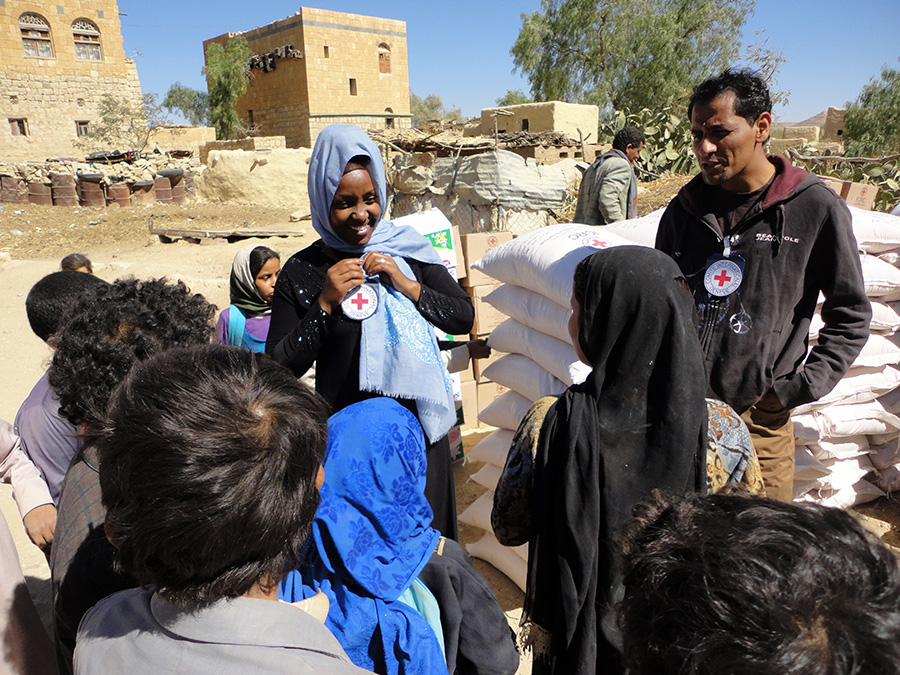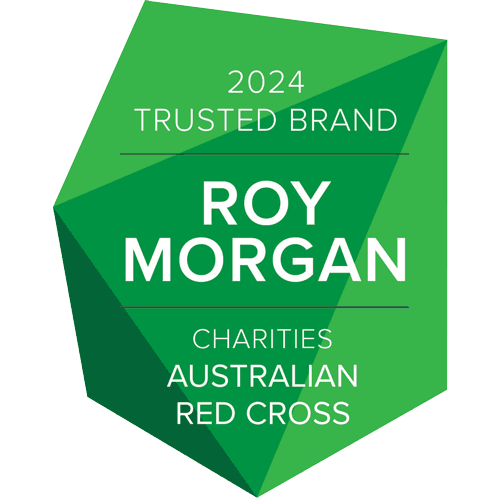ICRC statement on Yemen crisis
ICRC Regional Director for the Near and Middle East, Robert Mardini's address to the 2018 Yemen High-Level on behalf of the Red Cross Red Crescent Movement.

It is with great sorrow that I address you today on behalf of the entire Red Cross and Red Crescent Movement.
I don't think I need to go into any detail about the humanitarian situation facing the people of Yemen today. You know it. We know it. The world knows it.
Like many present here, I have visited Yemen several times during the past few years.
My colleagues from the International Committee of the Red Cross (ICRC), International Federation of Red Cross and Red Crescent Societies (IFRC) and supporting National Societies are working there now, alongside their fearless colleagues from the Yemen Red Crescent Society. Doing their best, against the odds.
A health system, crippled.
An economy, ruined.
A country, broken.
Insecurity and fear stalk every waking hour, of virtually every person living in Yemen today.
Put yourself in the shoes of the father who faces those terrible dilemmas every day: should I use the little money I have, to buy food for my family? Or medicines for my wife? Or school books for my children? Or fuel to run the generator which works the water pump?
Impossible choices.
We - and you - do our best.
As the Red Cross and Red Crescent Movement, we double our budget. We increase our staff. We deploy surgical teams. We work on the front lines. We cross the front lines. We visit detainees. We do a thousand activities. We risk our lives. As many others do. And, sometimes, pay the ultimate price.
Some progress is made. For instance, we have visited conflict-related detainees on both sides of the front line. A first step. But not enough. Many families remain without news of their detained relatives.
So, let's be honest. What we do, is a drop in the ocean. The scale of the challenge is so vast.
The health system needs to be rebuilt. Salaries need to be paid. An economy needs to be revived. A people need to live again: to feel dignity again.
But, unfortunately, it's the bombs and the bullets that remain the currency of the day.
We repeat our messages to all sides:
Don't target civilians.
Don't target hospitals.
Don't target ambulances.
Don't target humanitarian workers.
Lift the restrictions on the movement of goods into and across Yemen.
Pay salaries of civil servants who are running essential services.
Exercise restraint in the use of force.
And treat those in detention, with dignity.
Parties to the conflict have a responsibility to ensure that essential services are available in times of war. It's an obligation. Let's not forget that.
It's about respecting the basics. Respecting International Humanitarian Law (IHL). By all sides. No exceptions.
And there are so many sides. So many States and armed groups are involved in this conflict.
We need to remember that States supporting parties to the conflict have a legal and moral responsibility to ensure respect for IHL. They must use their influence and leverage on parties to the conflict, to make them improve behaviour and respect IHL. Simply put, there should be no support to warring sides if they do not respect the laws of war. No support without compliance! A simple condition which can save lives.
Suffice it to say, we still see huge potential for progress to be made - by all sides - in their obligation to respect the rules of war.
Ladies and gentlemen, there's a gap. There's an ever-widening gap between two things. What is said. And what is done.
On the one hand, there are statements and promises, power points and press releases. But on the other, the fighting rages on, the bombs continue to land, and the suffering continues.
So, the challenge today is bridging that gap between, what I call, 'wishful thinking', and reality on the ground.
Who's going to lead the people of Yemen out of this morass? Who's going to protect civilians? Who's going to ensure that weapon bearers are abiding by the rules of war? Who's going to claim the Moral High Ground?
It requires leadership. It requires bravery. It requires humanity.
Like some of you, I was at this conference a year ago. Describing the catastrophic humanitarian situation in Yemen. A year on, and that situation has deteriorated further.
Humanitarian aid is critical but won't solve the problem. It is high time for a political solution. Yemenis need to see a glimmer of hope at the end of the tunnel.
Hopefully, this conference can contribute to creating that glimmer.
The people of Yemen, living through this hell, really need that hope.
Thank you.
Learn more about protecting people in war - https://www.redcross.org.au/ihl
Charity donations of $2 or more to Australian Red Cross may be tax deductible in Australia. Site protected by Google Invisible reCAPTCHA. © Australian Red Cross 2025. ABN 50 169 561 394
